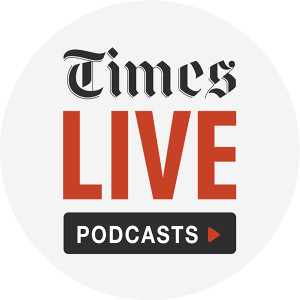
SHIRLEY DE VILLIERS: Trump, ‘the Covid comorbidity’
Loading player...
No-one likes to say, “I told you so”. Least of all during a pandemic.
But you’d forgive Atlantic science journalist Ed Yong a touch of schadenfreude as he watches the feckless Donald Trump fumble the US’s Covid-19 response.
In December 2016, a month before Trump’s inauguration as US president, Yong wrote a prescient piece ( in which he argued: “The question isn’t whether [Trump will] face a deadly outbreak during his presidency, but when? And, more importantly, how will he cope?”
Reflecting on that article now, Yong writes: “I suggested he would fail at diplomacy, close borders, tweet rashly, spread conspiracy theories, ignore experts, and exhibit reckless self-confidence. And so he did.”
In 2018, Yong penned another piece ( – this time an assessment of US preparedness for a possible pandemic. Again, he wrote of the importance of a leader “providing reliable information and a unifying spirit”.
Trump’s tendency to “delegitimise sources of information and readily buy into conspiracy theories”, he said, “could be disastrous”.
And here we are.
At the time of writing, the US has a total Covid case count of almost 5-million and has recorded more than 160,000 deaths. As Yong points out – that’s about 25% of global infections and deaths, for a country that’s home to about 4% of the global population.
In the face of a peak in new infections, and after nine consecutive days of a death toll above 1,000, Trump on Wednesday told his sycophantic friends at Fox News: “This thing’s going away like things go away.” (It is, of course, telling that Facebook and Twitter both pulled a clip from the interview in which Trump claimed children are “almost immune” to the virus, calling it misinformation.)
Yong’s point, in his latest Atlantic offering (, isn’t that it’s all Trump’s fault.
In a longform masterpiece laced with cold, controlled anger, Yong unpacks the various factors that have undermined the US response: a chronically underfunded public health department; a bloated and inefficient health-care system; systemic racism; a “shredded” social safety net; misinformation.
He considers how social institutions have facilitated the spread of the virus: “sick buildings”, built for efficiency rather than people; overpopulated prisons (the US has five to 18 times more prisoners per capita than other Western democracies); neglected nursing homes and long-term care facilities.
He explores how Covid “found, exploited and widened every inequity the US had to offer”.
It includes ...
But you’d forgive Atlantic science journalist Ed Yong a touch of schadenfreude as he watches the feckless Donald Trump fumble the US’s Covid-19 response.
In December 2016, a month before Trump’s inauguration as US president, Yong wrote a prescient piece ( in which he argued: “The question isn’t whether [Trump will] face a deadly outbreak during his presidency, but when? And, more importantly, how will he cope?”
Reflecting on that article now, Yong writes: “I suggested he would fail at diplomacy, close borders, tweet rashly, spread conspiracy theories, ignore experts, and exhibit reckless self-confidence. And so he did.”
In 2018, Yong penned another piece ( – this time an assessment of US preparedness for a possible pandemic. Again, he wrote of the importance of a leader “providing reliable information and a unifying spirit”.
Trump’s tendency to “delegitimise sources of information and readily buy into conspiracy theories”, he said, “could be disastrous”.
And here we are.
At the time of writing, the US has a total Covid case count of almost 5-million and has recorded more than 160,000 deaths. As Yong points out – that’s about 25% of global infections and deaths, for a country that’s home to about 4% of the global population.
In the face of a peak in new infections, and after nine consecutive days of a death toll above 1,000, Trump on Wednesday told his sycophantic friends at Fox News: “This thing’s going away like things go away.” (It is, of course, telling that Facebook and Twitter both pulled a clip from the interview in which Trump claimed children are “almost immune” to the virus, calling it misinformation.)
Yong’s point, in his latest Atlantic offering (, isn’t that it’s all Trump’s fault.
In a longform masterpiece laced with cold, controlled anger, Yong unpacks the various factors that have undermined the US response: a chronically underfunded public health department; a bloated and inefficient health-care system; systemic racism; a “shredded” social safety net; misinformation.
He considers how social institutions have facilitated the spread of the virus: “sick buildings”, built for efficiency rather than people; overpopulated prisons (the US has five to 18 times more prisoners per capita than other Western democracies); neglected nursing homes and long-term care facilities.
He explores how Covid “found, exploited and widened every inequity the US had to offer”.
It includes ...

